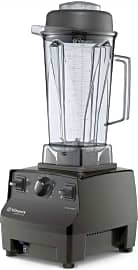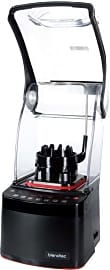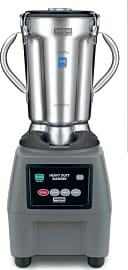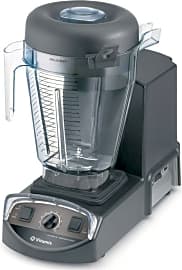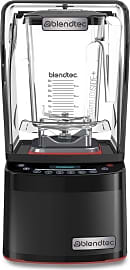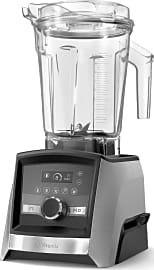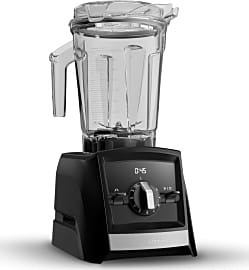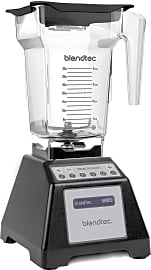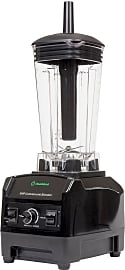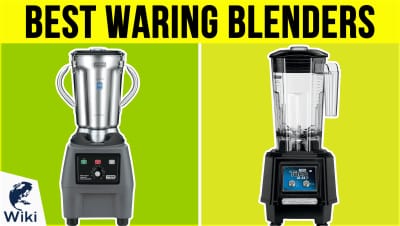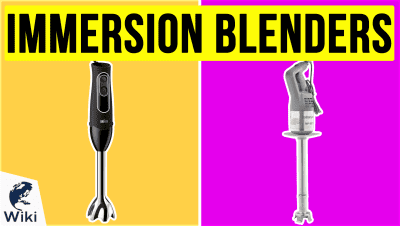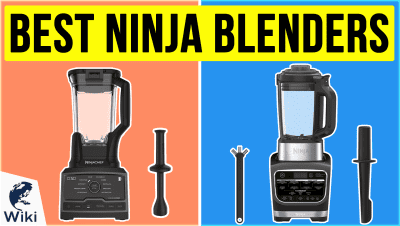The 10 Best Commercial Blenders

This wiki has been updated 37 times since it was first published in December of 2015. Perfect for pulverizing ice, fruit, vegetables, and more into things like shakes, ice cream, and even soups, these commercial blenders have the juice to handle daily duty in bars, restaurants, and coffee shops. Of course, if you're the kind of person who likes to host a lot of garden parties and summer barbecues, you might want to try one at home for smoothies and daiquiris, as well. When users buy our independently chosen editorial selections, we may earn commissions to help fund the Wiki.
Editor's Notes
November 10, 2020:
While very little has changed in the lineups of the two most prominent companies in this sector — namely Vitamix and Blendtec — we did see fit to make one big switch. For an extremely long time, the Vitamix 5200 and its predecessor the 5000 were the cream of the crop among their household models, and many were used in bars, coffee, shops, restaurants and more. The big advantage, which is still an advantage in all Vitamix models, is the tamper, a stick that's long enough to smash everything down toward the blades, but isn't long enough to hit the blades itself. I grew up with those two blenders in my household, but I think the company has actually improved upon them with the Vitamix Prep, or Vita-Prep if you want to sound in the know.
This model has a dedicated on/off switch that makes it so you can't accidentally engage the blades while you're cleaning it, and its start/stop switch is an auto-return toggle that's always in a dormant position, again making it so you can't accidentally have it set to run when you flip the on switch.
When you take a look at the Vitamix A3200, you'll see that it's got a scale built into its base that pairs with the company's smartphone recipe app, so you can measure things out perfectly. In all honesty, that app was a train wreck when it first came out, but it's so much better now that we added the company's Perfect Blend Smart Scale to our special honors section, so even if you end up with a different model, you can still weigh things out accurately.
November 12, 2019:
In revisiting this ranking, we wanted to push the included models further in the direction of commercial build quality and performance than our previous list had, and as such, we wound up removing almost everything that had previously been offered, save for the Blendtec Total Classic and the Cleanblend 3HP 1800-Watt. There's no doubt that you could probably walk into the average corner bar and find some of those models set up for mixing certain drinks, but ultimately that's just a bad choice on the part of the bar.
For true commercial excellence there are really only three brands that ever make the grade: Vitamix, Blendtec, and Waring. Those first two names in particular are the companies that supply the machines for Starbucks and Jamba Juice, among a litany of other massive chains that rely on their efficacy and consistency to build their brands.
At the upper echelons of these companies' respective lineups, you'll find commercial-grade motors in the neighborhood of 4HP, each of which is capable of blending at least 100 drinks per day. They often come with sound shields for use in small storefronts, but they're also often covered by shorter warranties than models the company makes for home use, simply because of this increase in daily workload. So, if you're looking for commercial power for your kitchen and you don't mind the noise, something like the Vitamix A3500 might be your best bet, as it offers an exceptionally strong motor with very user friendly controls and a decade of warranty coverage.
Special Honors
Vitamix Perfect Blend Smart Scale This scale is designed to work with any Vitamix container, and it pairs via Bluetooth with the company's app to let you do things like set your jar type, follow provided recipes or write your own, and get inspired to make more out of your investment. Of course, it works as a food scale for anything, with settings for grams, ounces, and pounds and ounces, with a conveniently backlit display. vitamix.com
Blending With Powers Beyond Science
The other half of that coupling is the underside of a blade assembly that seals into the base of a pitcher.
The blender as we know it is a pretty simple machine. A motor turns at one half of a coupling. The other half of that coupling is the underside of a blade assembly that seals into the base of a pitcher.
Fill the pitcher up with goodies and watch as the power of the motor translates through the coupling and into the blades that pulverize the food.
Sounds easy enough, right? Sure, if we're talking about bananas and milk, maybe even a little ice cream. But you can eat those things with great ease. Your blender doesn't need to be much more powerful or better designed for mastication than that meager mouth of yours.
Go on out to the grocery store and get yourself some whole kale, coffee beans, and frozen pineapple. Come home and try to chew on a mouthful of that. Suddenly, we need more power don't we? We need a better design.
The professional versions of this rather rudimentary blender breakdown take those basic elements and superpower them. It's kind of like taking Wolverine, who was already pretty awesome — what with the whole regenerative invincibility thing he had going on – and coating his skeleton with adamantium.
To be clear, I don't mean to imply that any of these blenders has an adamantium blade. That would be silly. What almost all of them do have are supercharged motors, steel blade assemblies, shatter-resistant containers, and solid warranties.
The SUV Of Kitchen Appliances?
Here's an interesting question: Do you own a restaurant, smoothie shop, or coffee house?
You don't need to be a business owner to deserve and get a lot of great use out of a commercial blender, but it doesn't hurt to know what you're going to be using it for and how often you plan on using it.
You might be tempted to consider the more expensive blenders on this list the way that I consider most SUVs on the road.
This is often true of SUVs, but it isn't true of these blenders.
They're functional vehicles that can do more than almost any other cars, but the most off-roading they ever see is sand that the wind blows from the beach onto the roads nearest the ocean. In other words, people buy them because they can do things for which those people will never use them.
This is often true of SUVs, but it isn't true of these blenders.
In the spirit of honesty, I should divulge that I worked for one of these blender companies in what increasingly seems to have been a former life. One thing I noticed from my interactions with our customers is that the features and capabilities that most customers didn't even know about when they bought the machine became some of their favorite applications.
People would buy a machine just to get their kids to drink some kale that the other blenders couldn't handle, and they'd find themselves making their own peanut butter and cooking soups as much as anything else.
Now, if you're on a budget, and you're not terribly interested in anything but those smoothies, you might survive a purchase lower on our list.
If, however, you're doing this research because you've decided it's time to make a serious investment in your health and your kitchen–or you do, in fact, have a professional shop–, you need to go home with number one or number three.
The Blender Of My Childhood
If you had asked me when I was a teenager when the first blender came out, I probably would have said that it premiered some time in the 1970s or 80s, since we very clearly had history's first blender in our kitchen.
It was loud, weak, and overly complicated. Also, teenagers don't have any perspective.
Not long after that, the Vitamix hit the market, introducing an incredible amount of power into the blending field.
Little did I know that the first blenders arrived in the early 1920s, an invention by Stephen Poplawski that he sold to drug stores for the purpose of making malted milkshakes.
Not long after that, the Vitamix hit the market, introducing an incredible amount of power into the blending field.
The biggest problem with the Vitamix in those days was that it had a steel container, so you couldn't see what was going on inside it.
Competitors cut every corner imaginable, but added the benefit of a glass container, and the blender wars were born.
Now, you can get a dozen different blenders with a thousand different features, and nearly none of them will do the simple things you want them to do.
That is, with the notable exception of our recommended machines.


